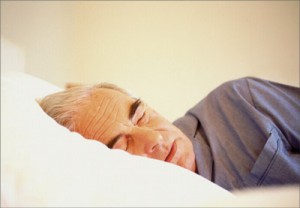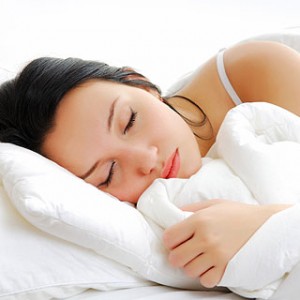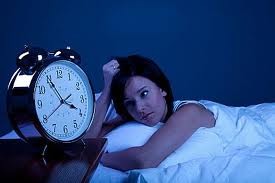Insomnia
 Although you might feel as if you’re the only one who can’t get a good night’s sleep, the truth is that one in every three people complains about insomnia. Fortunately, there are a variety of safe, natural ‘lullabies’ that can ease you into dreamland – without the risk of side effects.
Although you might feel as if you’re the only one who can’t get a good night’s sleep, the truth is that one in every three people complains about insomnia. Fortunately, there are a variety of safe, natural ‘lullabies’ that can ease you into dreamland – without the risk of side effects.
What is it?
Though many people think of insomnia as the inability to fall asleep, it also involves not beign able to stay asleep or continually waking up earlier than planned. Sleep problems that last just a couple of nights or a few weeks are often ralted to stress or to excitement. But insomnia can become chronic, lasting for months or even years.
What causes it?
Insomnia is considered a symptoms or many underlying conditions or situations that may be hard to identify. Dietary and lifestyle factors, physical pain, a majory illness, medications, even a bad mattress, can all contribute to sleeplessness. For most people, however, tension, anxiety and depression lie at the root of insomnia. Discovering the basic cause or causes of your sleep problems may take some detective work, but it is ultimately the best way of finding a cure.
What are the symptoms?
- Difficulty in falling asleep.
- Inability to sleep all night.
- Waking up too early.
Are there any natural therapies?
Numerous studies have found valerian, among the most researched of all herbal supplements, to be an effective sleep aid. It works best when rotated with other sedating herbs, such as chamomile, kava and passionflower. These herbs, taken in the form of pills, teas or tinctures, promote relaxation and reduce stress, making it easier to fall asleep.
An alternative to valerian is the prescription hormone melatonin, which is a synthetic version of the body’s own sleep hormone. It may be especially beneficial for people who can’t sleep because of chronic pain. Valerian or melatonin can be rotated with the herb St John’s wort or with the somewhat controversial supplement 5-HTP (a form of the amino acid tryptophan), both of which raise levels of the sleep inducing brain chemical serotonin.
In some instances, a nutrient deficiency, especially a lack of calcium, magnesium or vitamin B6, can lead to sleep problems, so replenishing those nutrients can be beneficial. The B vitamin niacinamide, taken with B6, is useful as well because it helps ease anxiety. It may be especially helpful to try magnesium or B6 along with 5-HTP.
What else can I do?
- Stick to regular sleep pattern, even on weekends.
- Use your bed only for sleeping, not for reading or watching television.
- Exercise regularly (though not in the evening) to help reduce stress.
- Avoid alcohol, tobacco and caffeine.
Did you know?
One reason many people feel so tired and often nap after a traditional Christmas dinner is that turkey is especially rich in the amino acid tryptophan, a natural sleep inducer.

Wake Up Call – Insomnia Often Leads to Depression
Men who have difficulty falling asleep are at greater risk of depression than those who nod off easily, researchers have found.
A randomised study at the Western Australian Centre for Health and Ageing at The University of Western Australia found that difficulty falling asleep doubles the risk of depression in older men.
“Excuse the pun, but our results are a wakeup call. I believe that clarifying what drives the association between sleep problems and depression should become an international research priority” said Professor Almeida.
Frighteningly, the use of pharmaceutical sleeping tablets were found to drive the risk of depression. Besides counting sheep, find out what you can do to rest easy.

Is Snoring A Problem? Obstructive Sleep Apnoea Explained
As scientists began to understand sleep apnoea in more depth, they started to see it as the foundation for serious illnesses affecting the whole body.
We all know that eating too many cheeseburgers, never exercising and smoking can all contribute to cardiovascular disease, but what about… snoring?
Most of us consider snoring as little more than an annoyance. But there is some suggestion that an extreme form of snoring, known as obstructive sleep apnoea (OSA), can put you at increased risk of certain life-threatening cardiovascular conditions.
Sleep apnoea leaves a scar beyond the daily difficulties of focus and attention that come with sleepiness

Sleep & Stress Relief – Ultra Muscleze Night – New Product!
If you ever thought Ultra Muscleze would be perfect to calm restless legs before bed or quieten the mind before sleep, but worried that the B Vitamins would be too stimulating at night, Bioceuticals Ultra Muscleze Night has arrived!
Ultra Muscleze Night provides calming magnesium without the B vitamins, and also features sour cherry to improve sleep efficiency and quality.
Calcium, choline and inositol are included to support a healthy nervous system, while lactic has been shown to reduce stress and promote relaxation when mentally stressed.
Yet another Death from Stilnox?
Security footage shows 30-year-old Mairead Costigan walking groggily across the cycle path and climbing onto a ledge before she fell.
Mairead (niece of Frank Costigan, QC, the head of the royal commission into organised crime in the 1980’s) died when she plunged about 20 metres from a raised cycleway on the Sydney Harbour Bridge last September.
Her family believes it was another tragedy involving the controversial sleeping pill Stilnox.

Sleep Better Tonight – Insomnia Explained
If you have ever struggled to fall asleep at night or stay asleep through the night, you are not alone.
It is estimated that over 30% Australians experience insomnia while close to 60% of people have sleep trouble in a given year.
Chronic insomnia impairs mood and cognitive function while accelerating the degenerative process of ageing.
Beat insomnia today with natural strategies.

10 Common Sleep Mistakes and Their Solutions
Didn’t get enough sleep last night? You are not alone.
Although we may not like to admit it, many of the sleep problems we experience are the result of bad habits and behaviours.
Here are the top 10 common sleep mistakes we all make and the ways to break them.

Stilnox – Another Evil Sleeping Tablet
Following revelations of the troubled swimmer Grant Hackett about his “heavy reliance” on the “evil” sleeping pill Stilnox, in the latter stages of his pool career, Australia’s Olympic athletes have been banned from using the sedatives Stilnox, Rohypnol and Mogadon.
The Australian Olympic Committee is also rewriting its official team medical manual to include the sleeping pill bans and fresh warnings to athletes on the consequences of taking the drugs.
Emed give you the low down on this dangerous drug.

Lack Of Sleep Alters Hundreds Of Genes
Sleep depravation for several nights in a row disrupts hundreds of genes that are essential for good health.
Recent research revealed substantial changes in the activity of genes that govern the body’s response to stress, immunity, metabolism, and cognition, suggesting that poor sleep can have a negative effect on long-term wellbeing.
These findings may help to explain the serious health consequences that have been linked to short sleep.
By ensuring you have about eight hours sleep a night, you are protecting your future health, and reducing the risk of developing chronic illnesses.





